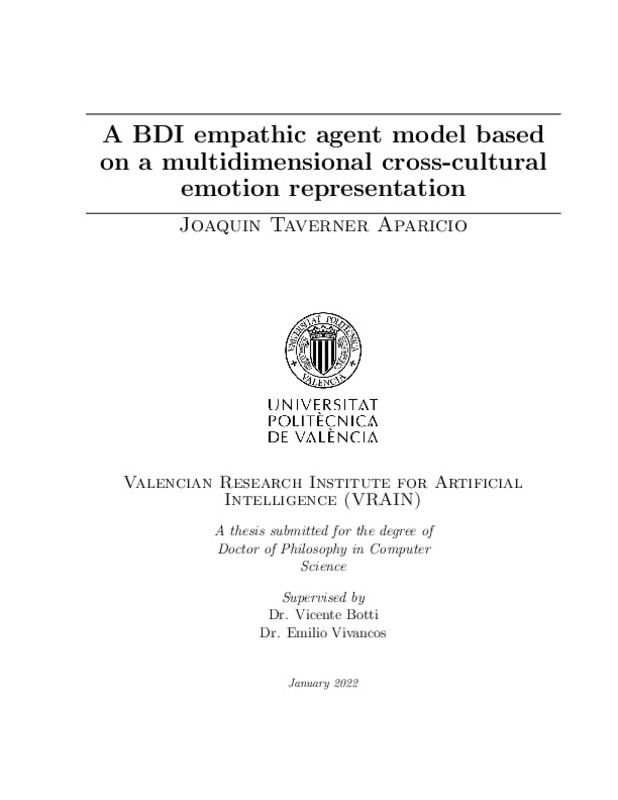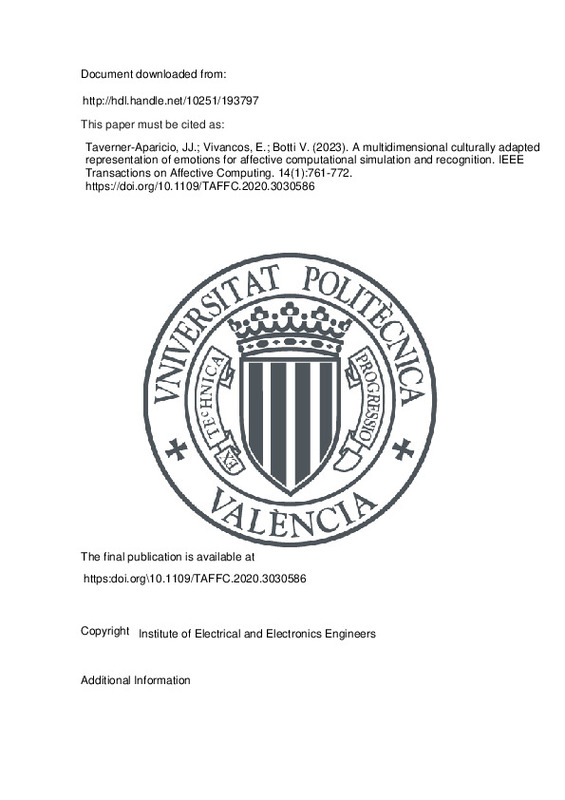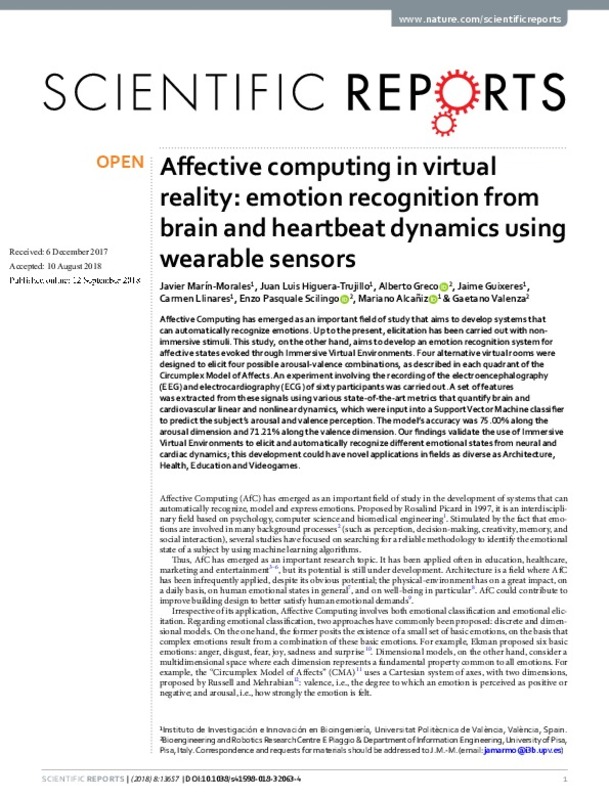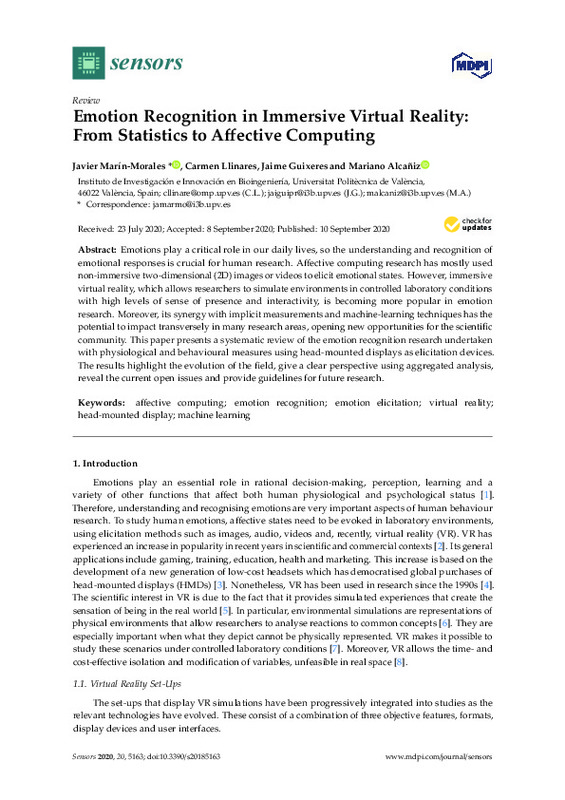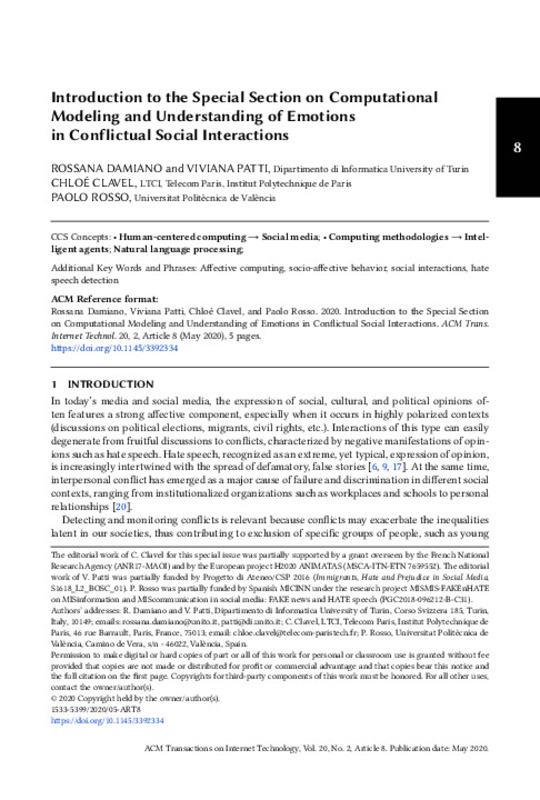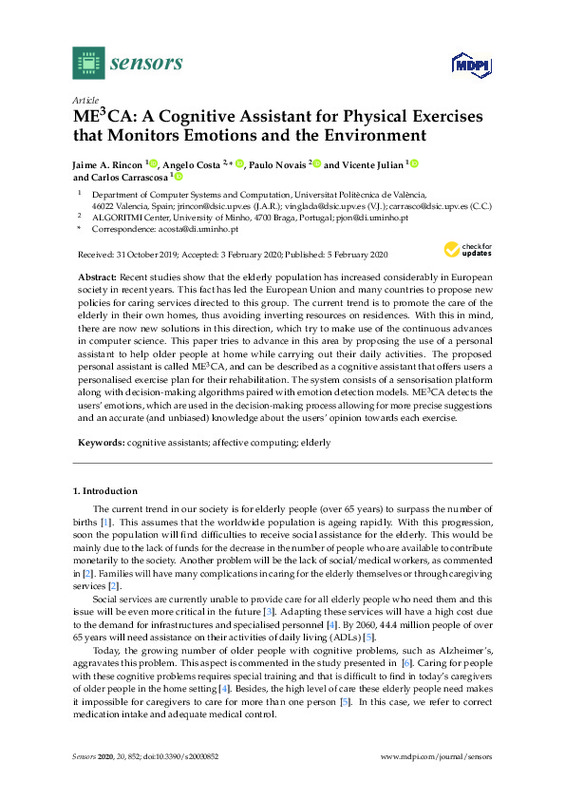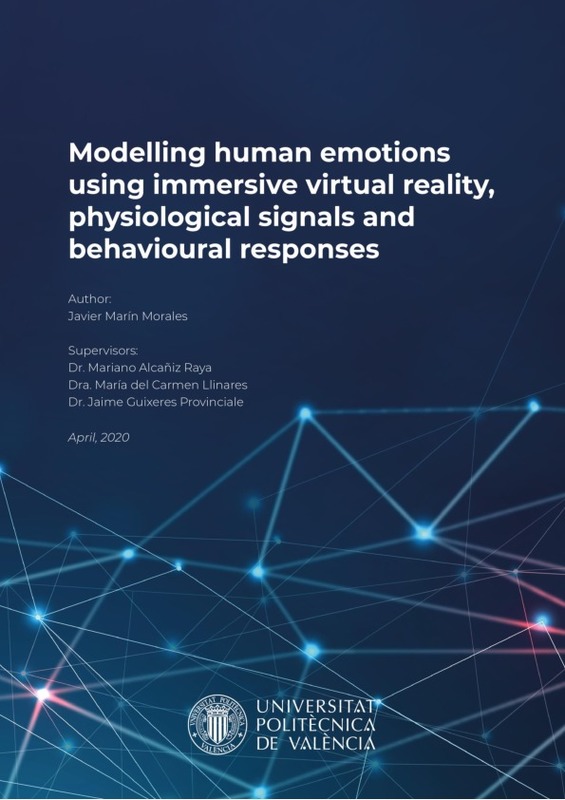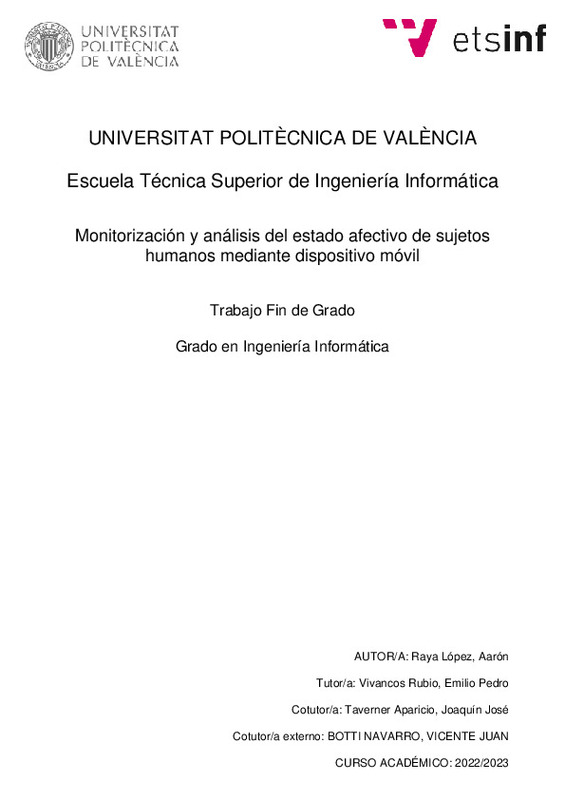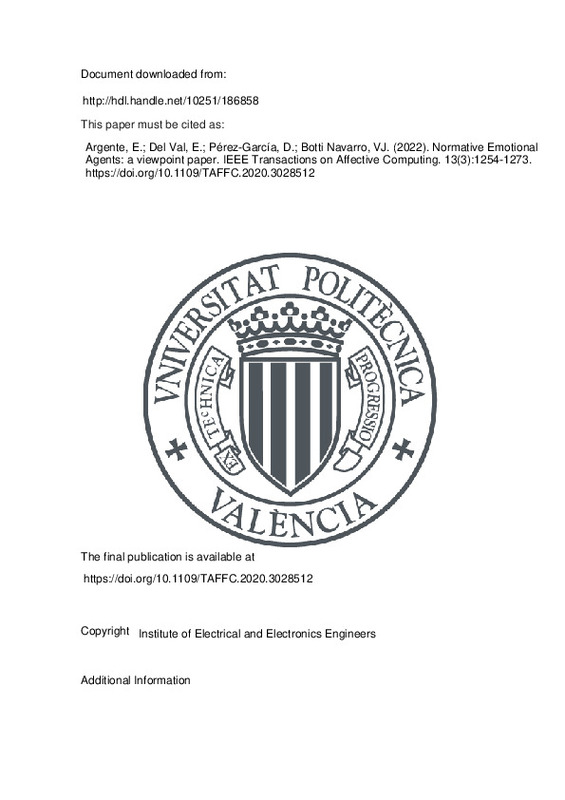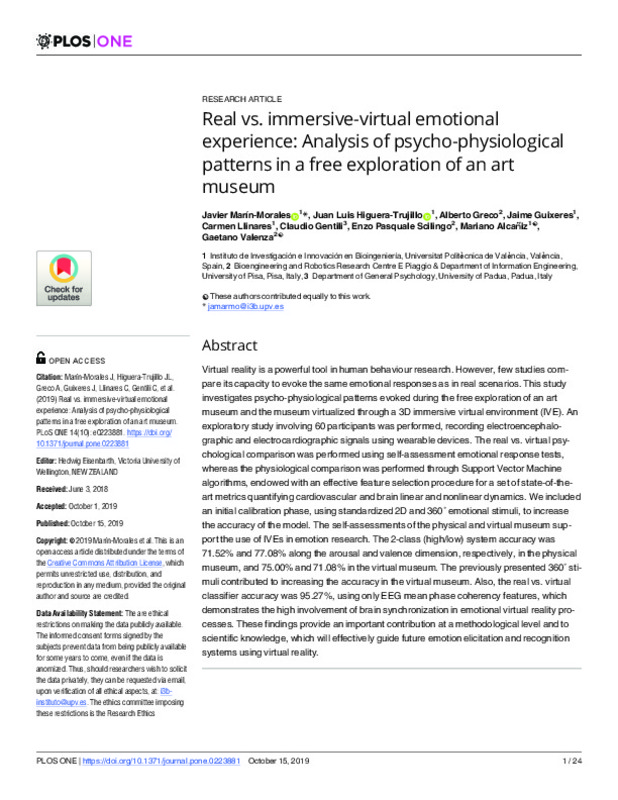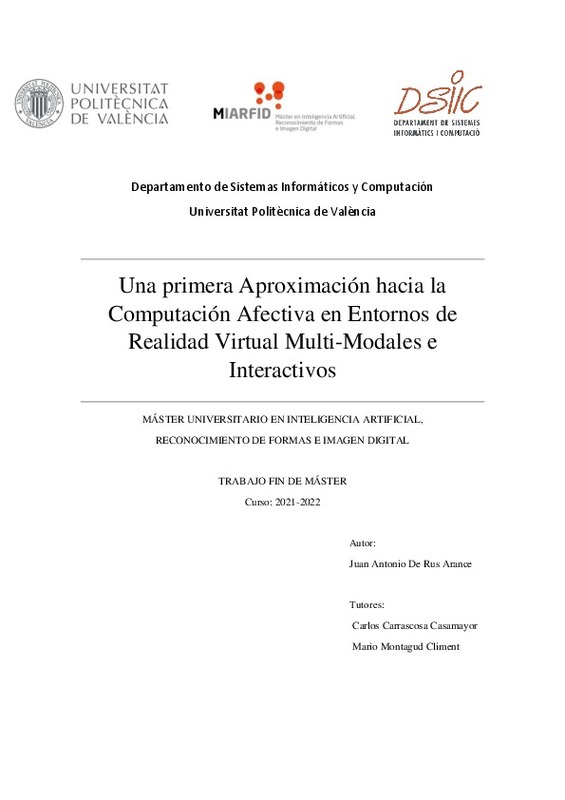

Listar por palabra clave "Affective computing"
RiuNet: Repositorio Institucional de la Universidad Politécnica de Valencia
- RiuNet repositorio UPV
- :
- Listar por palabra clave
JavaScript is disabled for your browser. Some features of this site may not work without it.
Buscar en RiuNet
Listar
Mi cuenta
Ayuda RiuNet
Admin. UPV
Listar por palabra clave "Affective computing"
Mostrando ítems 1-12 de 12
-
Taverner Aparicio, Joaquín José (Universitat Politècnica de València, 2022-02-28)[ES] Los seres humanos somos por naturaleza seres afectivos, las emociones, el estado de ánimo, nuestra personalidad, o nuestras relaciones con los demás guían nuestras motivaciones y nuestras decisiones. Una de las ...
-
Taverner-Aparicio, Joaquín José; Vivancos, Emilio; Botti V. (Institute of Electrical and Electronics Engineers, 2023-03-01)[EN] One of the main challenges in affective computing is the development of models to represent the information that is inherent to emotions. It is necessary to consider that the terms used by humans to name emotions ...
-
Marín-Morales, Javier; Higuera-Trujillo, Juan Luis; Greco, Alberto; Guixeres Provinciale, Jaime; Llinares Millán, María del Carmen; Scilingo, Enzo Pasquale; Alcañiz Raya, Mariano Luis; Valenza, Gaetano (Nature Publishing Group, 2018)[EN] Affective Computing has emerged as an important field of study that aims to develop systems that can automatically recognize emotions. Up to the present, elicitation has been carried out with nonimmersive stimuli. ...
-
Marín-Morales, Javier; Llinares Millán, María Del Carmen; Guixeres Provinciale, Jaime; Alcañiz Raya, Mariano Luis (MDPI AG, 2020-09)[EN] Emotions play a critical role in our daily lives, so the understanding and recognition of emotional responses is crucial for human research. Affective computing research has mostly used non-immersive two-dimensional ...
-
Gracia Laso, Desiree Irene (Universitat Politècnica de València, 2021-07-28)[ES] La conducta del ser humano se encuentra notablemente influenciada por las emociones que siente, por este motivo su reconocimiento ha sido fuente de estudio a lo largo de la historia. Tradicionalmente para evocar las ...
-
Damiano, Rossana; Patti, Viviana; Clavel, Chloé; Rosso, Paolo (Association for Computing Machinery, 2020-05)
-
Rincon, Jaime-Andres; Araujo, Angelo; Novais, Paulo; Julian Inglada, Vicente Javier; Carrascosa Casamayor, Carlos (MDPI AG, 2020-02)[EN] Recent studies show that the elderly population has increased considerably in European society in recent years. This fact has led the European Union and many countries to propose new policies for caring services ...
-
Marín Morales, Javier (Universitat Politècnica de València, 2020-07-27)[ES] El uso de la realidad virtual (RV) se ha incrementado notablemente en la comunidad científica para la investigación del comportamiento humano. En particular, la RV inmersiva ha crecido debido a la democratización de ...
-
Raya López, Aarón (Universitat Politècnica de València, 2023-09-07)[ES] El aumento de la esperanza de vida ha traido consigo que un grán número de personas mayores presenten signos de deterioro en su salud emocional y cognitiva. En este deterioro han influido múltiples factores sociales ...
-
Argente, Estefanía; Del Val, E.; Pérez-García, Daniel; Botti Navarro, Vicente Juan (Institute of Electrical and Electronics Engineers, 2022-09)[EN] Human social relationships imply conforming to the norms, behaviors and cultural values of the society, but also socialization of emotions, to learn how to interpret and show them. In multiagent systems, much progress ...
-
Marín-Morales, Javier; Higuera-Trujillo, Juan Luis; Greco, Alberto; Guixeres, Jaime; Llinares Millán, María Del Carmen; Gentili, Claudio; Scilingo, Enzo Pasquale; Alcañiz Raya, Mariano Luis; Valenza, Gaetano (Public Library of Science, 2019-10-15)[EN] Virtual reality is a powerful tool in human behaviour research. However, few studies compare its capacity to evoke the same emotional responses as in real scenarios. This study investigates psycho-physiological patterns ...
-
Rus Arance, Juan Antonio de (Universitat Politècnica de València, 2021-12-10)[ES] La computación afectiva es un campo de la informática con muchas aplicaciones por desarrollar y explotar. En este trabajo aplicaremos la computación afectiva a entornos de Realidad Virtual (RV) interactivos para ...
Mostrando ítems 1-12 de 12

Universitat Politècnica de València. Unidad de Documentación Científica de la Biblioteca (+34) 96 387 70 85 · RiuNet@bib.upv.es


